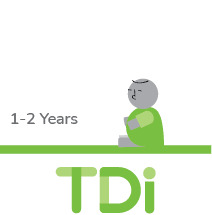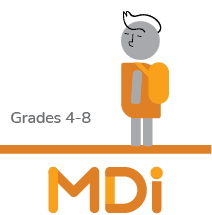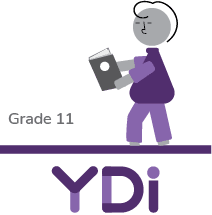

The Youth Development Instrument: Overview
Helping to identify individual and contextual resources, opportunities, and practices that affect positive youth development.
MADE IN BC
Led by researchers at Simon Fraser University in collaboration with HELP.
SELF-REPORTED
A self-reported questionnaire completed by Grade 11 students.
ONLINE QUESTIONNAIRE
Can be completed online at school or at home in approximately 20-30 minutes.
SUPPORTING ADOLESCENTS
Offers insights into health and wellbeing of young people with an emphasis on childhood experiences and mental health.
BENEFITS OF THE YDI
Helps inform actionable policies and practices that support healthy trajectories for youth into emerging adulthood.
YDI IS VOLUNTARY
Completion of the YDI questionnaire by students is voluntary.
What is the YDI?
Building on the work of the Early Development Instrument (EDI) and the Middle Years Development Instrument (MDI), the YDI is a self-report questionnaire that measures the health and well-being of Grade 11 (16-17 years of age) students in British Columbia (BC). The YDI is the product of a collaboration between the BC Centre for Disease Control, the Human Early Learning Partnership (HELP) at UBC (Co-investigators Dr. Martin Guhn and Dr. Kim Schonert-Reichl), and Simon Fraser University (SFU). In particular, the YDI builds on HELP’s ongoing work on the Early Development Instrument (EDI) and the Middle Years Development Instrument (MDI). The YDI team brings extensive expertise in youth development, population health measurement and monitoring, health promotion, interdisciplinary research collaboration, and partnership building.
The Youth Development Instrument (YDI) is a self-report survey administered to BC Grade 11 students. Developed in collaboration with the Human Early Learning Partnership (HELP) at UBC, school districts, community partners, health practitioners, policymakers, and youth, the YDI was designed to collect population-level data of youth well-being indicators. Individual and contextual youth well-being and resilience indicators are measured via five dimensions on the YDI: social and emotional learning (e.g., prosocial behaviour, empathy); learning environment and engagement (e.g., school belonging, bullying); social well-being (e.g,. friendship intimacy, community belonging); physical and mental well-being (e.g., physical activity, MH concerns such as anxiety, depression, substance use; MH service use); and navigating the world (e.g., civic-mindedness, multiculturalism). The YDI also asks youth about the impacts of COVID-19.
In 2016, Dr. Hasina Samji, Dr. Naomi Dove (YDI Advisory), and a team of researchers led a series of focus groups with young adults which revealed that the major challenges for people their age included mental illness, substance use, and worries about their future. These discussions inspired the creation of the YDI in collaboration with HELP to better understand these challenges, the assets and experiences which can help mitigate their impact, and to identify a cohort of young people who may be further followed in their transition from high school into emerging adulthood. The YDI research team works directly with a group of stakeholders who provide ongoing feedback on research objectives, survey development, survey delivery, and project expansion. Among others, these stakeholders include the YDI Youth Advisory Council, Provincial Policy & Practice Advisory Board, and research partners from across BC, Canada, and around the world.
YDI Dimensions & Subdomains
Data collected from the YDI offer insight into the health and wellbeing of young people through the survey’s strengths-based approach and emphasis on developmental assets such as positive childhood experiences and positive mental health. These assets, also known as ‘cross-cutting domains’, span the YDI’s five dimensions: Social and Emotional Development, Social Well-being, Learning Environment and Engagement, Physical and Mental Well-being, and Navigating the World. Each of these dimensions is divided into several domains and subdomains that ask questions about myriad emotions, thoughts, perspectives, behaviours, and experiences. These five dimensions strategically identify individual and contextual resources, opportunities, and practices that foster or hinder positive youth development. In addition, using data linkages, researchers can monitor how responses change over the life course and map out how current youth experiences effectively shape trajectories into emerging adulthood. In this way, the YDI provides a means to inform actionable policies and practices that support healthy trajectories across the lifespan.
Data Collection
YDI is currently in Pilot Phase 3. In the 2021-2022 school year, 22 school districts and five independent schools participated in YDI data collection. These participating districts are listed below.
Revelstoke
Kootenay-Columbia
Vernon
Chilliwack
Abbotsford
New Westminister
Burnaby
Maple Ridge & Pitt Meadows
Coquitlam
West Vancouver
Sea to Sky
Central Coast
Boundary
Peace River South
Greater Victoria
Okanagan-Skaha
Qualicum
Pacific Rim
Comox Valley
Nisga’a
Learn more about the YDI project implemented by Dr. Hasina Samji and the team at Simon Fraser University’s by visiting Capturing Health and Resiliency Trajectories (CHART) Lab.
Widening the Lens: EDI and the Child Development Monitoring System
The YDI is part of a collection of tools designed to gather data at critical transition times in across childhood and adolescence. The YDI, led by researchers at Simon Fraser University, is part of the Child Development Monitoring System, which includes the Toddler Development Instrument (TDI), the Childhood Experiences Questionnaire (CHEQ), the Early Years Development Instrument (EDI) and the Middle Years Development Instrument (MDI). These questionnaires gather information on both child and adolescent development and the contextual factors that influence development, specifically experiences and environments. This Monitoring System is a foundation for high-quality research and for informed policy and program decision-making.




